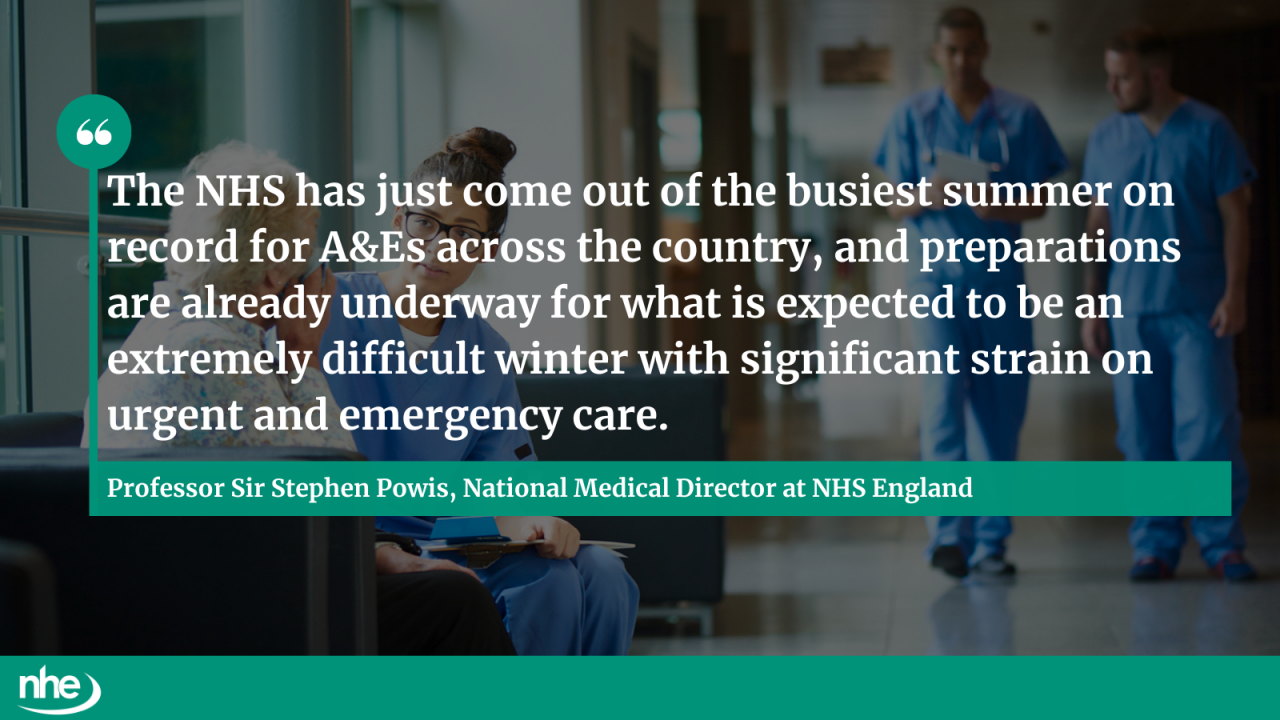The latest monthly performance statistics from NHS England (NHSE) show that it has been the “busiest summer ever” for English A&E departments, with NHS staff managing nearly 6.8 million attendances over the three-month period.
Across the months of June, July and August, attendances were up more than 240,000 compared with last year.
In August, staff admitted, transferred or discharged over three in four (76.3%) patients within four hours – the target is 95%. August also saw 2.16 million A&E attendances overall, with around 525,000 emergency admissions.
Waiting times
At the end of July, there were 7.6 million referral to treatment (RTT) pathways open – this includes 6.4 million individual patients.
Of those 7.6 million:
- 290,326 pathways took longer than 52 weeks;
- 50,860 pathways took longer than 65 weeks;
- 2,738 pathways took longer than 78 weeks; and
- 107 cases pathways took longer than 104 weeks.
In 58.8% of cases, the patient had waited up to 18 weeks – the target is 92%. July saw 1.86 million RTT start. The median waiting time in July for those waiting to start treatment was 14 weeks.
Ambulance services responded to 730,000 incidents in August, including 73,000 category 1 calls. The average response time for category 1 calls was eight minutes and three seconds – the national standard is seven minutes.

The NHS in England did meet the faster cancer diagnosis standard for the third month in a row, however, with more people than ever seen within 28 days – 220,000.
Meanwhile, bed capacity remains under pressure with an average of 12,000 patients every day spending more time in hospital than necessary.
Busy winter expected
NHSE’s national medical director, Professor Sir Stephen Powis, said: “The NHS has just come out of the busiest summer on record for A&Es across the country, and preparations are already underway for what is expected to be an extremely difficult winter with significant strain on urgent and emergency care.”
He added: “We are hugely grateful to NHS staff for their continuing efforts, and important improvements have been made in ambulance response times, long waits for treatment and cancer diagnosis.
“But it is clear, as evidenced in today’s Lord Darzi review, that waits across a range of services remain unacceptable and there is much more to do to deliver more timely care for those who need it.”
Director of the NHS Confederation’s acute network, Rory Deighton, warned of difficult decisions ahead. He said: “NHS leaders are currently facing really difficult decisions over whether to cut staff or services to balance their books when they want to be ramping up capacity to prepare for winter.
“Without immediate funding there is a very real risk the NHS falls into crisis this winter, with ambulance response and handover delays, overcrowded A&Es and people stuck in hospital beds because of a lack of community and social care.”
Image credit: iStock



















